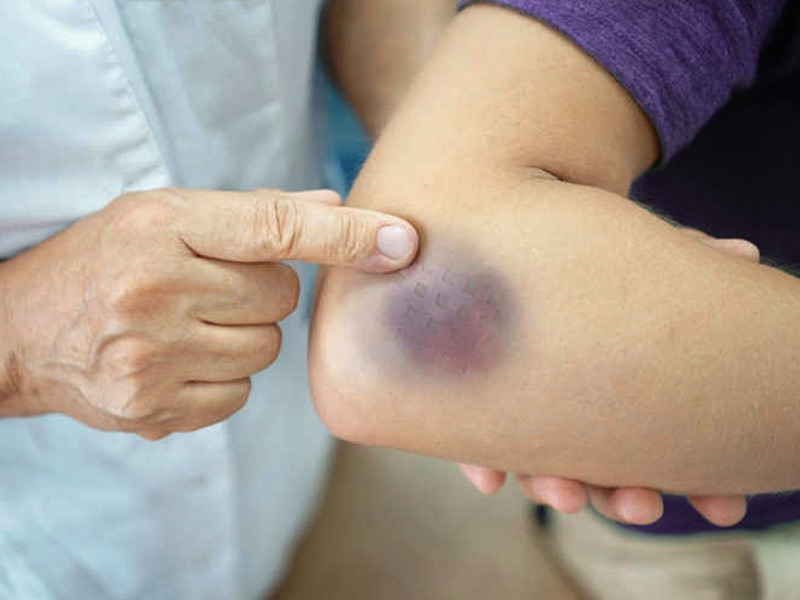
Ever Found a Mysterious Bruise You Can’t Explain? Here’s What Your Body Might Be Telling You
Have you ever spotted a bruise on your arm or leg and wondered, “Where did that come from?” You’re not alone. While it’s normal to bump into things now and then, frequent or unexplained bruises could be your body’s way of waving a red flag.
Medical experts from the Mayo Clinic and Cleveland Clinic explain that bruises form when tiny blood vessels (called capillaries) break under the skin—usually from a bump or minor injury. This causes blood to leak into nearby tissues, creating those familiar black, blue, or purple marks. Over time, your body naturally reabsorbs the blood, and the bruise gradually fades.
But here’s the catch: if bruises show up often or after very little impact, it might point to something more serious—such as an underlying health condition, a reaction to medication, or even a vitamin deficiency.
 Why Do You Bruise So Easily? Here Are the Most Common Causes
Why Do You Bruise So Easily? Here Are the Most Common Causes
Ever wonder why some people seem to bruise at the slightest touch? If you’re one of them, there’s usually a medical explanation behind it. Let’s break down some of the most common reasons you might be spotting more bruises than usual:
 1. Getting Older Comes with Thin Skin (Literally)
1. Getting Older Comes with Thin Skin (Literally)
As we age, our skin naturally becomes thinner and loses some of the protective fat that cushions blood vessels. That means even a gentle bump can cause those telltale black-and-blue marks.

Source: Mayo Clinic – Bruise Causes
 2. Vitamin Deficiencies: More Than Just a Diet Concern
2. Vitamin Deficiencies: More Than Just a Diet Concern
Your body relies on certain vitamins to keep blood vessels strong and your blood clotting properly. If you’re not getting enough, bruises can pop up more easily.
- Vitamin C – Helps produce collagen, which strengthens blood vessel walls.
- Vitamin K – Crucial for blood clotting.
- Vitamin D – Supports overall vascular health.
A lack of these can stem from a poor diet, absorption issues, or underlying health problems like celiac disease or chronic liver conditions.
Source: National Institutes of Health – Vitamin Fact Sheets
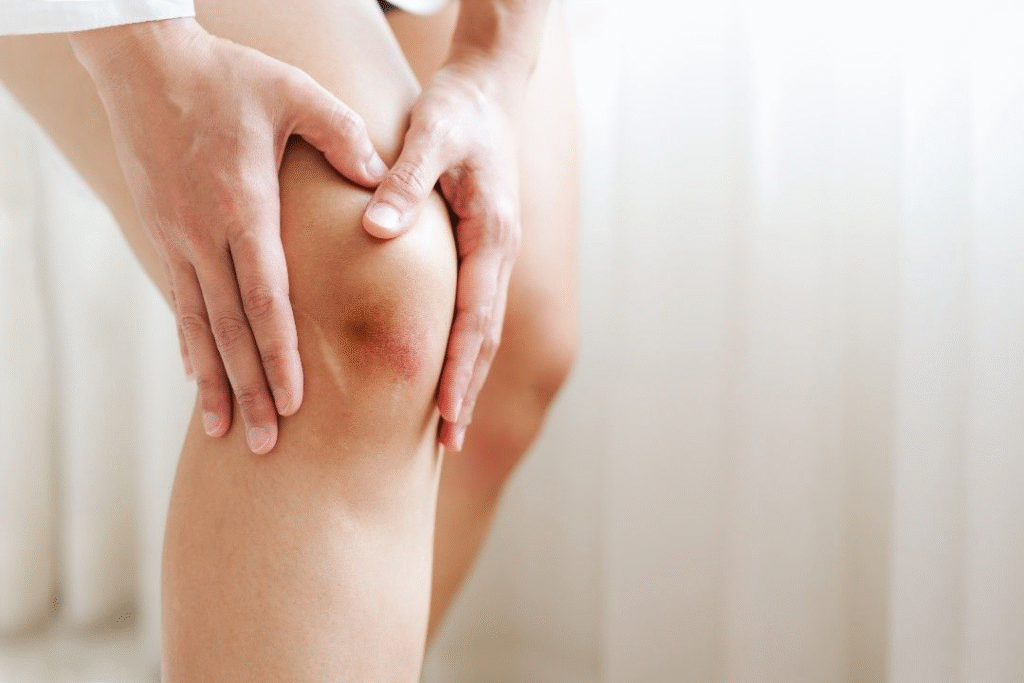
 3. Medications & Supplements: Hidden Culprits Behind Easy Bruising
3. Medications & Supplements: Hidden Culprits Behind Easy Bruising
Surprised by frequent bruises but can’t recall an injury? Your medicine cabinet might be the answer. Many everyday medications—and even some natural supplements—can interfere with how your blood clots, making you more prone to bruising.
Here are some common offenders:
Prescription Medications:
- Blood thinners like warfarin and heparin
- Antiplatelet drugs such as aspirin and clopidogrel
- NSAIDs (non-steroidal anti-inflammatory drugs) like ibuprofen and naproxen
Supplements to Watch:
- Fish oil (omega-3)
- Vitamin E
- Ginkgo biloba
- Ginseng
These substances can reduce platelet activity or slow blood clotting, making your blood vessels more vulnerable—even to minor bumps.
Source: Cleveland Clinic – Causes of Easy Bruising
Note: Never start or stop any medication or supplement without first talking to your healthcare provider.
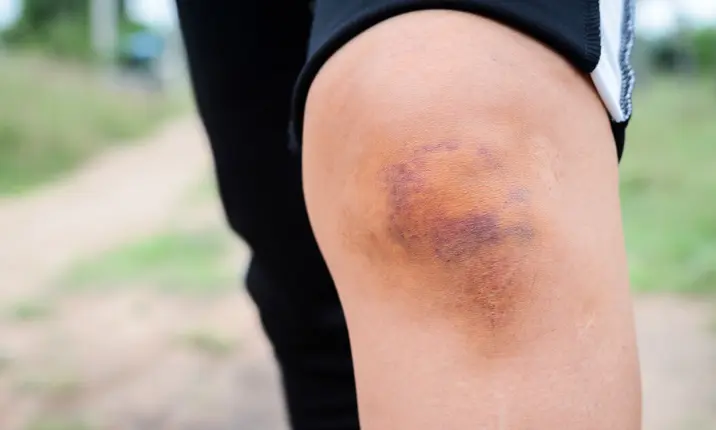
 4. Underlying Medical Conditions: When Bruising Is a Bigger Warning Sign
4. Underlying Medical Conditions: When Bruising Is a Bigger Warning Sign
If bruises seem to appear out of nowhere—and it’s happening often—it might be more than just fragile skin or a vitamin shortfall. Some health conditions directly affect how your blood clots or how your immune system behaves, making unexplained bruising a red flag worth taking seriously.
Here are some conditions linked to abnormal bruising:
- Platelet disorders like thrombocytopenia (low platelet count)
- Hemophilia – a rare disorder where the blood doesn’t clot properly
- Leukemia – a type of blood cancer that can impact clotting
- Chronic liver disease – impairs the production of clotting factors
- Vasculitis – inflammation that weakens blood vessel walls
These conditions can disrupt your body’s natural ability to control bleeding under the skin, leading to more frequent or severe bruises.
Source: Centers for Disease Control and Prevention – Blood Disorders
Important: If you’re experiencing frequent or severe bruising without a clear cause, consult your doctor promptly. It may be a sign of an
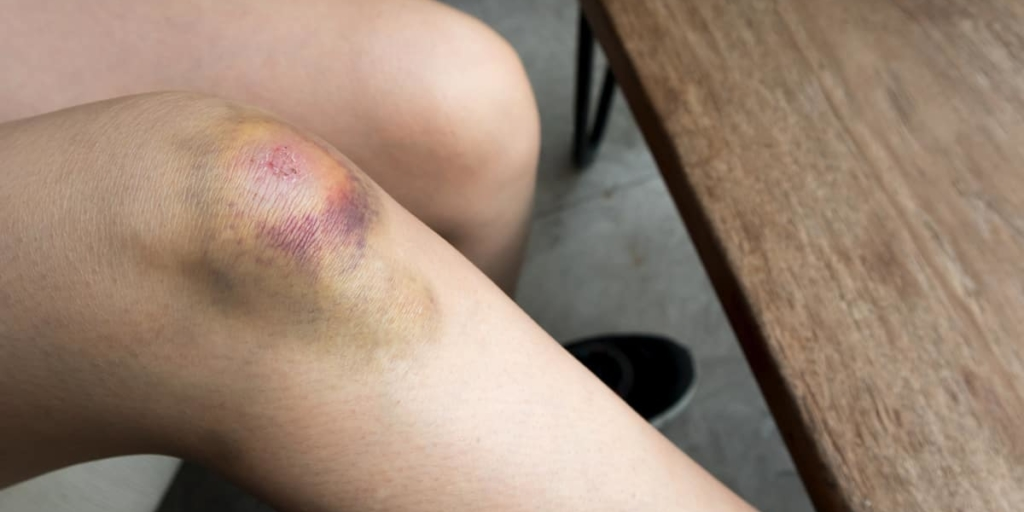
 5. Diabetes and Bruising: An Overlooked Connection
5. Diabetes and Bruising: An Overlooked Connection
If you have diabetes, you might notice your skin bruises more easily—and heals more slowly. This isn’t just a coincidence. Poorly controlled blood sugar can lead to a range of skin complications, including increased bruising.
Here’s why it happens:
- Weakened circulation from long-term high blood sugar can reduce blood flow to the skin.
- Fragile capillaries are more prone to breaking, even with minor bumps.
- Delayed healing means bruises stick around longer and are more noticeable.
These issues can make everyday knocks more damaging, especially in areas like the arms and legs.
Source: American Diabetes Association
Tip: Keeping your blood sugar in check not only helps prevent major complications—it also protects your skin from becoming a bruise-prone zone.
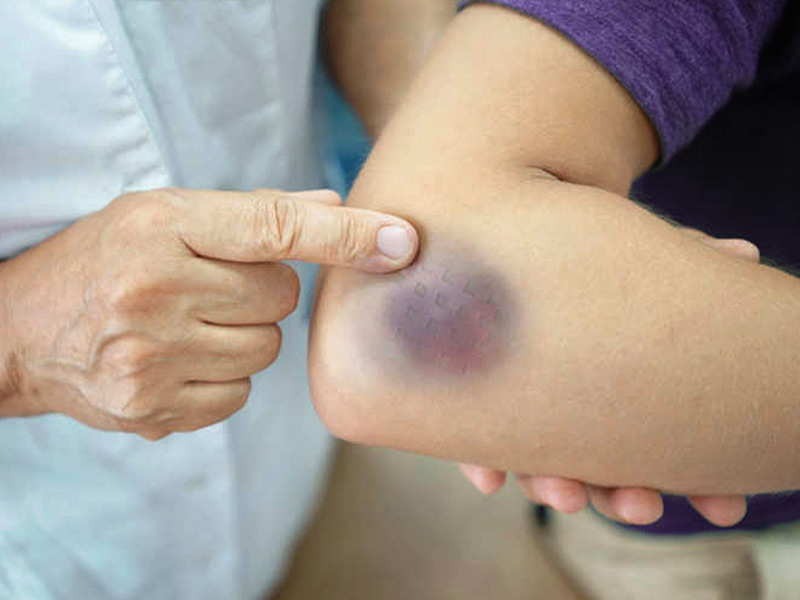
 6. Sun-Damaged or Thinning Skin: A Hidden Cause of Bruising
6. Sun-Damaged or Thinning Skin: A Hidden Cause of Bruising
Spending too much time in the sun doesn’t just age your skin—it can also make it more prone to bruising. Over the years, UV exposure breaks down collagen and elastin, two proteins that keep your skin strong and elastic. As these structures weaken, your skin becomes thinner and blood vessels underneath are more vulnerable to damage.

Source: American Academy of Dermatology
 When to See a Doctor About Bruising
When to See a Doctor About Bruising
Most bruises are harmless and fade on their own. But in some cases, they could be signs of something more serious. Seek medical attention if you notice:
- Bruises that appear without any clear cause
- Large, painful, or frequent bruises
- Bruising alongside bleeding from gums, nose, or elsewhere
- Bruises that don’t improve or continue to spread
- Accompanying symptoms like fatigue, fever, or unexplained weight loss
Source: NHS – Bruising
Reminder: Early diagnosis can make all the difference. If you’re unsure, it’s always safer to check with a healthcare professional.
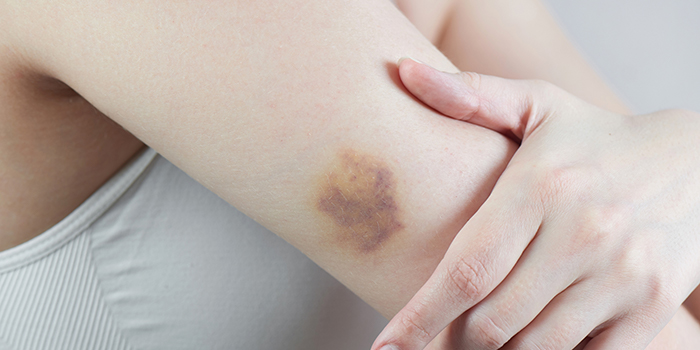
 How to Prevent Bruising: Simple Steps to Protect Your Skin
How to Prevent Bruising: Simple Steps to Protect Your Skin
If you bruise easily, don’t worry—there are proactive ways to help minimize the damage and strengthen your skin from the inside out. Here’s how to guard against those unexpected black-and-blues:
Fuel Your Body Right
Eat a balanced, nutrient-rich diet packed with vitamin C, vitamin K, and iron—all essential for blood vessel health and proper clotting.Gear Up Smart
When playing sports or doing physical work, wear protective equipment to shield vulnerable areas like shins, arms, and elbows.Stay Medication-Savvy
Some drugs and supplements can increase your risk of bruising. Always consult your doctor before starting or stopping any medication or herbal product.Keep Skin Hydrated
Moisturizing regularly helps maintain skin elasticity and resilience, making it less prone to injury.Shield Against the Sun
UV rays weaken skin over time. Use SPF sunscreen and wear protective clothing to reduce sun-related skin thinning.
Taking these small steps can help protect your skin and reduce the likelihood of future bruises—especially if you’re already prone to them.
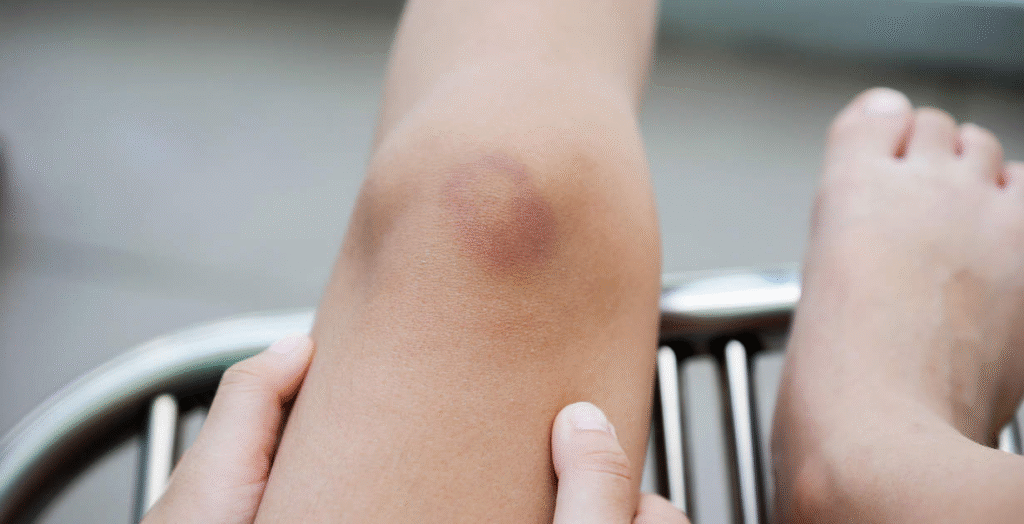
 Summary: Stay Informed, Stay Proactive
Summary: Stay Informed, Stay Proactive
Bruising is a common part of life—especially as we age or experience minor bumps. But when bruises show up frequently or without a clear reason, it might be your body’s subtle way of signaling a deeper issue.
The good news? You’re not powerless. With greater awareness and reliable health information, you can take steps to better understand what’s happening beneath the surface. From optimizing your diet and protecting your skin to knowing when to consult a doctor, being proactive is your best defense.

 Sources Cited and Verified:
Sources Cited and Verified:
- Mayo Clinic – Bruise Causes
- Cleveland Clinic – Why Am I Bruising So Easily?
- National Institutes of Health – Vitamins & Minerals Fact Sheets
- Centers for Disease Control and Prevention – Blood Disorders
- American Diabetes Association
- American Academy of Dermatology
- NHS UK – Bruises
